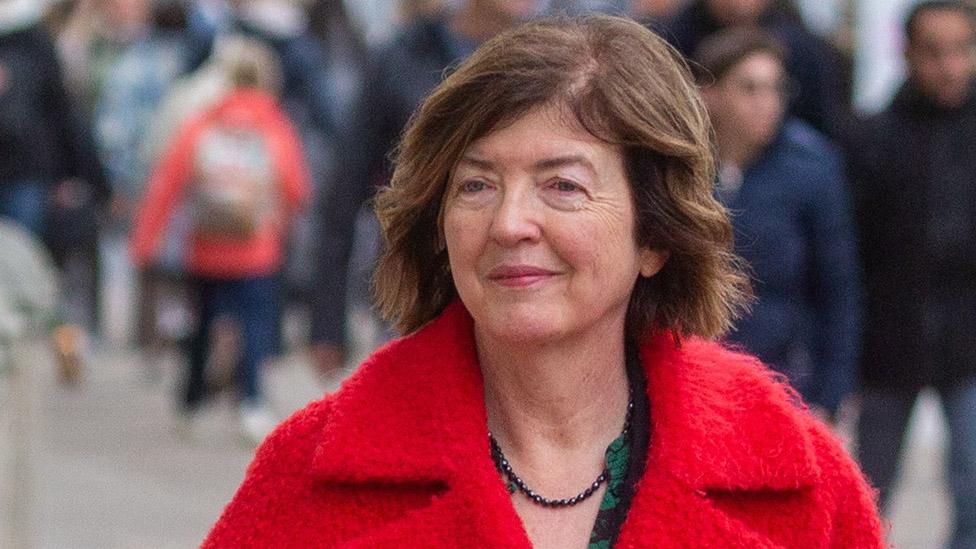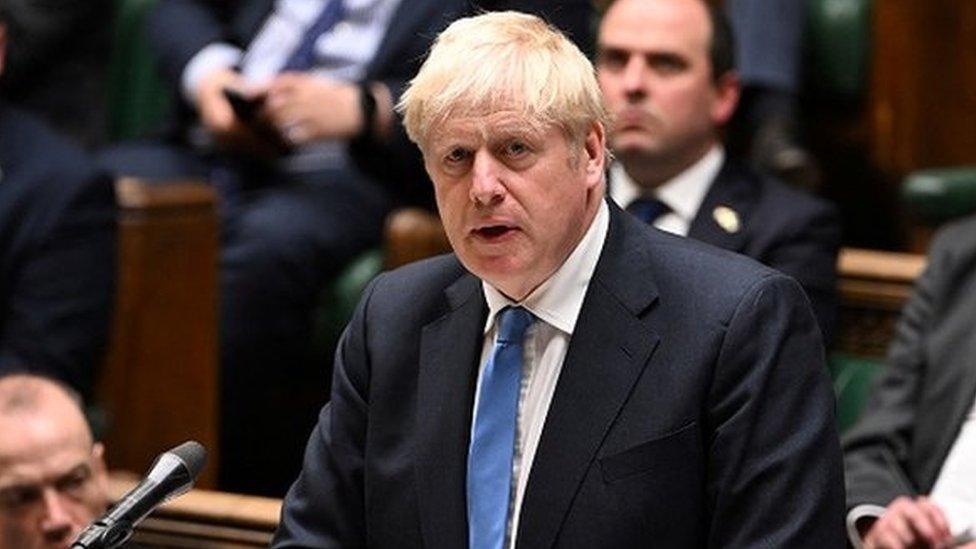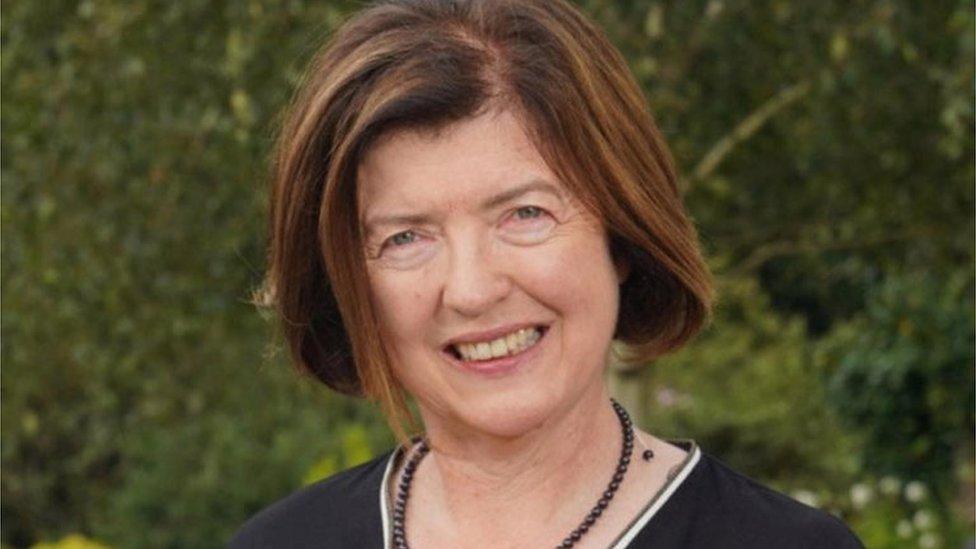Keir Starmer's job offer to Sue Gray may have broken rules, says minister
- Published

Former civil servant Sue Gray's proposed move to Sir Keir Starmer's office may have breached Whitehall's rules, a minister has said.
Jeremy Quin accused Labour of "acting fast and loose" with the impartiality of the civil service.
Ms Gray, who investigated parties held in Downing Street during the Covid pandemic, has been invited to become Sir Keir's new chief of staff.
Angela Rayner said Tory MPs were indulging in "conspiracy theories".
Boris Johnson and his allies have seized on Labour's job offer to claim Ms Gray's investigation into lockdown gatherings in Downing Street when he was prime minister was an attempt to smear him.
Answering an urgent question in the Commons, Paymaster General Mr Quin said this was "an exceptional situation, it is unprecedented for a serving permanent secretary to resign to seek to take up a senior position working for the leader of the opposition."
He said there were four rules for civil servants that might have been broken, including informing the government appointments watchdog, the Advisory Committee on Business Appointments (Acoba).
"The rules state that approval must be obtained prior to a job offer being announced. The Cabinet Office has not as yet been informed that the relevant notification to Acoba has been made," he said.
Other rules that would be looked at by the Cabinet Office concerned impartiality, the declaration of outside interests, and contact with opposition parties being cleared with ministers, he added.
Mr Quin urged Labour to publish details of its communications with Ms Gray, including when these began and who was involved.
Deputy Labour leader Ms Rayner accused a "sleaze-addicted" government" of being "so self-obsessed that they are using parliamentary time to indulge in the conspiracy theories of the former prime minister and his gang".
Angela Rayner and Jeremy Quin on Labour’s job offer to civil servant Sue Gray.
"What will they ask for next, a Westminster Hall debate on the moon landings, the bill of dredging the Loch Ness, or a public inquiry into whether the Earth is flat?" she asked.
'Conniving with Labour'
"This debate says more about the delusions of the modern Conservative Party than it does anything else."
But former cabinet minister Jacob Rees-Mogg - a close ally of Mr Johnson - suggested Ms Gray had "smashed to pieces the idea of an independent civil service" by "conniving in secret meetings" with Labour.
Her Partygate report "we now know was done by a friend of the socialists. Does this not undermine all her previous work?" he asked.
Earlier, Sir Keir told LBC radio he had had "absolutely no contact" with Ms Gray, who left the civil service on Thursday, as she prepared her report into the lockdown gatherings in government buildings.
But the Labour leader repeatedly declined to say when he first approached the then senior civil servant about becoming his chief of staff.
"I've been looking for a chief of staff for a little while now, but Sue will lay that out, but there's nothing improper at all," he said.
Sir Keir added that he had known her since he was director of public prosecutions - a role he occupied from 2008-2013 - but she was not a friend.
Ms Gray was expected to tell Acoba on Monday when her contacts with Labour began.
An Acoba spokeswoman told the BBC this was a confidential process and no statement would be made until a new job was taken up, when its advice on an appropriate waiting period would be published.
No timescale for the process was known, she added.
Senior civil servants, as well as ministers, are expected to check with Acoba about any employment they wish to take within two years of leaving government.
The body provides advice and can recommend a delay of up to two years in starting a new job, but it has no power to block appointments.
However, Labour has said the party and Ms Gray will abide by Acoba's recommendations.
'Different light'
Earlier, Science Secretary Michelle Donelan said there was "no reason to believe" Ms Gray was not impartial when she carried out her Partygate investigation.
"She was a leading civil servant who obviously swore and accepted the civil service code in which one of those key requirements is impartiality," she told Sky News.
But, Ms Donelan added, the main concern was about "what process has taken place for her to acquire this new job, have talks taken place when potentially they shouldn't have, etc?"
Ms Gray produced a highly-critical report into lockdown gatherings held in Downing Street while Mr Johnson was prime minister last year.
Mr Johnson is now facing a different inquiry, being conducted by a cross-party group of MPs, into whether he misled Parliament when he said Covid rules had not been broken in Downing Street.
In an initial report published on Friday, the MPs on the Privileges Committee said the evidence they had seen "strongly suggests" Covid rule breaches would have been "obvious" to Mr Johnson.
Ms Gray joined the civil service in the 1970s and has held a number of senior positions, including head of the government's propriety and ethics team.
- Published3 March 2023

- Published3 March 2023

- Published3 March 2023

- Published30 June 2023
